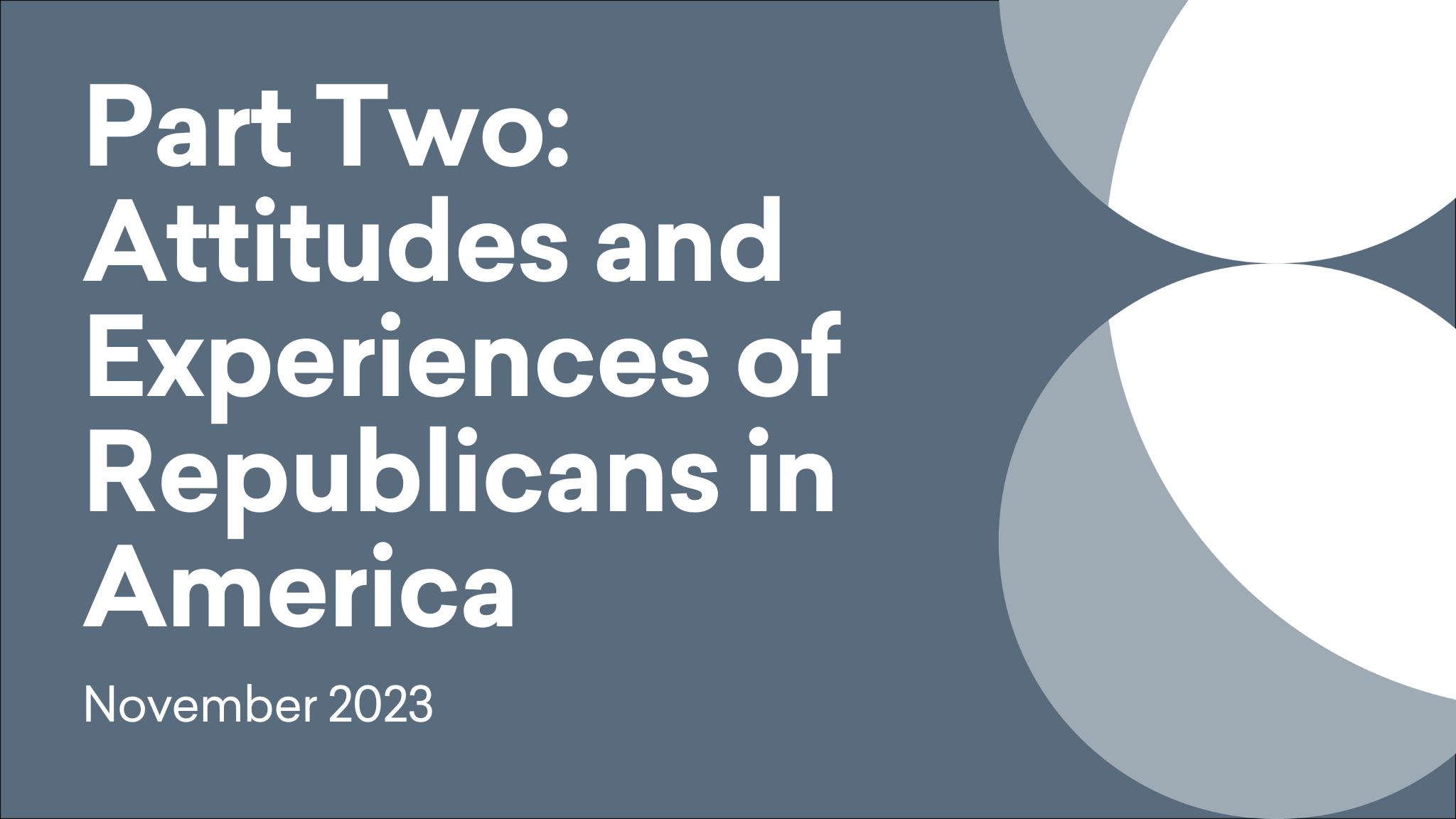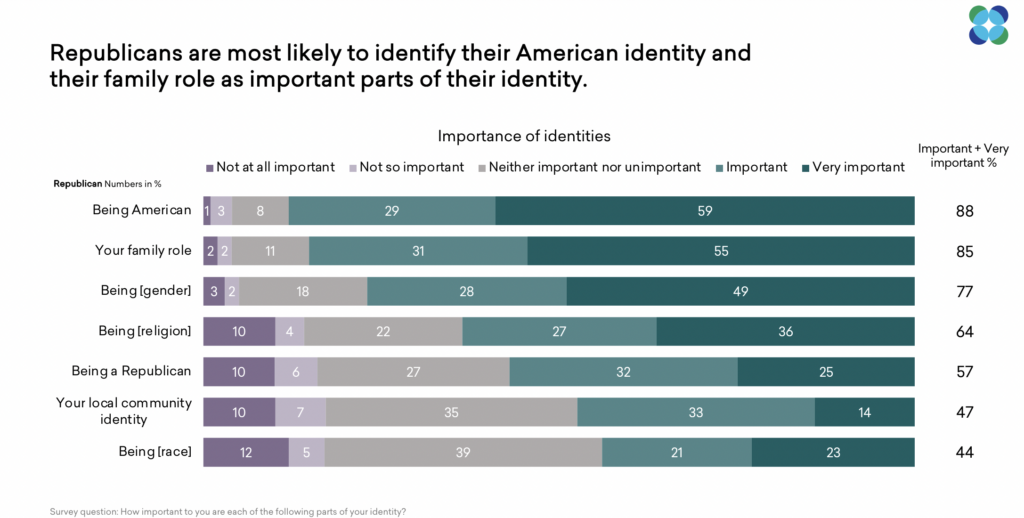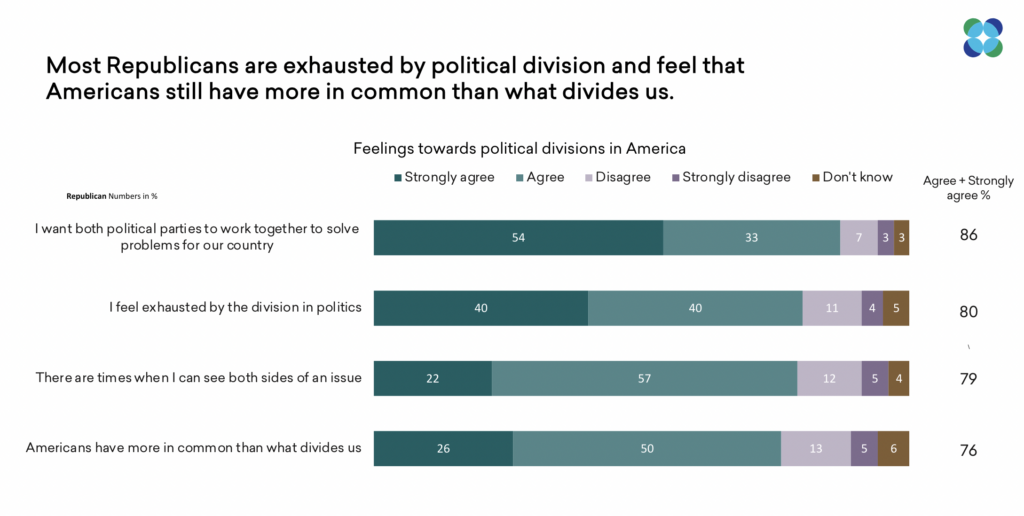
07 November 2023
August 21, 2023
American Identity
Our national survey of 800 registered Republican voters explores what priorities Republicans want to see from their candidates and how they feel going into election season. Our survey finds, Republicans overwhelmingly want to see a focus on conservative issues such as the economy, crime and immigration while a battle against ‘woke’ ideologies appears significantly less appealing.
Polling Firm: YouGov
Sample Size: n=800 registered Republican voters
Fieldwork Dates: August 8-14, 2023
Margin of Error: +/- 3.7 for registered Republican voter avg.
of Republican voters believe we have more in common than what divides us.
of Republican voters agree that “there are times when I can see both sides of an issue.”
of Republican voters say they want both political parties to work together to solve problems for our country.
Far too often in politics, our first question of people is what candidate they support. We organize tens of millions of people into clusters that we describe with frames such as “Trump voters” or “Biden voters” as the case may be. There is an obvious and important logic to this approach—knowing which candidate people support is a good predictor of how people will vote, and any organization interested in political outcomes in America wants to track and influence what candidates gain support among various segments of the population.
But we should be honest that this approach has significant limits. As we document in this report, Americans—including Republican voters—are far more than their political identities. For example, when we ask Republicans what elements of their identity are important to them, they are much more likely to point to things such as their family role or their identity as an American than they are to call out being a Republican. Similarly, only 7 percent of Republicans said that they felt a strong sense of belonging with a political organization whereas 40 percent said this about a faith community. As these data points underscore, categorizing people based on the candidates they support obscures some of the most salient feelings, attitudes, and experiences of the voters themselves.

We have seen this play out in our prior work on perception gaps. These are the misperceptions we hold about what our political opposites believe. The most politically-active Americans, those most likely to think in terms of Trump voters or Biden voters, have the largest perception gaps. These inaccurate impressions, while not the only factor, push us to see the other side as enemies and foster a more hostile sense of ‘us-versus-them’.

Our intent with this report, then, is to flip the conventional approach. Rather than start with which candidates Republicans support, we begin with an exploration of the core beliefs that animate Republicans’ views and attitudes today.
Explore the depth of our research at your fingertips. Get the complete insights by downloading the full report today.
What unites and divides Americans today? This newsletter takes a closer look at issues pressing on America’s social and political fabric and provides recommendations for how to strengthen ties to keep us bound together.